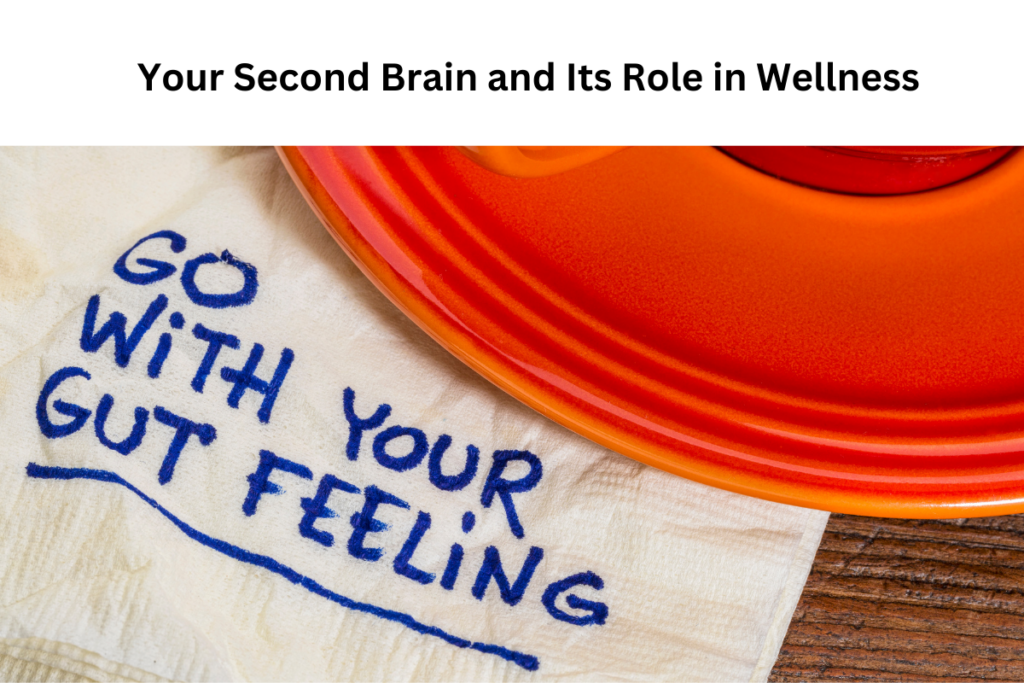
When we think about brain health, we often focus on mindset, memory, and mental clarity. But what if the key to a balanced, resilient mind isn’t just in your head—it’s in your gut? Emerging research in functional medicine and neuroscience highlights the gut as our “second brain,” with the gut-brain connection influencing everything from mood and stress response to cognitive function and immune health.
Understanding the Gut-Brain Axis
The gut and brain are in constant communication through the gut-brain axis, a complex network involving the nervous system, immune system, and endocrine (hormonal) system. This bidirectional communication means that what happens in the gut directly impacts the brain—and vice versa. The vagus nerve, which extends from the brainstem to the intestines, plays a central role in this communication, transmitting signals that influence digestion, inflammation, and even emotional states.
The Role of the Microbiome in Mental Health
Your gut is home to trillions of bacteria that make up the gut microbiome. These microbes don’t just help digest food—they also produce neurotransmitters like serotonin and dopamine, which regulate mood and emotional well-being. In fact, around 90% of serotonin, the “feel-good” neurotransmitter, is produced in the gut. When the microbiome is imbalanced due to factors like poor diet, chronic stress, or antibiotic use, neurotransmitter production can be affected, contributing to mood disorders such as anxiety and depression.
Inflammation and the Gut-Brain Connection
Chronic inflammation in the gut—often triggered by processed foods, toxins, or food sensitivities—can lead to increased permeability of the gut lining, commonly known as “leaky gut.” This allows inflammatory compounds to enter the bloodstream, triggering systemic inflammation and potentially affecting brain function. Research suggests that chronic inflammation may contribute to brain fog, anxiety, and even neuro-degenerative diseases.

Supporting Your Second Brain for Optimal Health
A functional medicine approach to gut and brain health focuses on restoring balance through targeted nutrition, lifestyle changes, and gut-healing strategies:
- Nourish Your Microbiome: Eating a diverse range of fiber-rich foods (fruits, vegetables, and fermented foods) supports beneficial gut bacteria.
- Reduce Inflammatory Triggers: Avoid processed foods, excessive sugar, and artificial additives that can disrupt the gut barrier and promote inflammation.
- Manage Stress: Practices like meditation, deep breathing, and yoga can help regulate the nervous system and support gut health.
- Support the Vagus Nerve: Stimulating the vagus nerve through practices like humming, singing, and cold exposure can enhance gut-brain communication.
- Consider Functional Testing: If you experience chronic digestive or mental health symptoms, functional testing can help identify imbalances in your gut microbiome and guide a personalized approach to healing.
A Holistic Path to Wellness
The gut-brain connection underscores the importance of a whole-body approach to health. Whether you’re struggling with digestive issues, anxiety, or chronic inflammation, addressing gut health can be a powerful step toward overall well-being.
Are you ready to start optimizing your gut-brain health? At Canopy Wellness, we take a functional medicine approach to uncovering root causes and creating personalized wellness plans. Book a Free 15-Minute Consultation Today! 💚 Head to our Work With Me page to check out program offerings and don’t forget to sign up for our free monthly newsletter below where we delve into topics like lifestyle medicine, ingredient highlights, medication concerns and more.
Disclaimer
At Canopy Wellness, your health and well-being are our top priority. The information shared in our blog posts is intended for educational and informational purposes only and should not be taken as medical advice. If you are experiencing a health concern, we encourage you to consult with a qualified healthcare professional for personalized guidance and support.
While you explore ways to nourish your body through whole foods, quality sleep, stress management, and lifestyle practices, please remember that these suggestions are not a replacement for professional care. Always seek the advice of your healthcare provider with any questions you may have regarding a medical condition or treatment.
